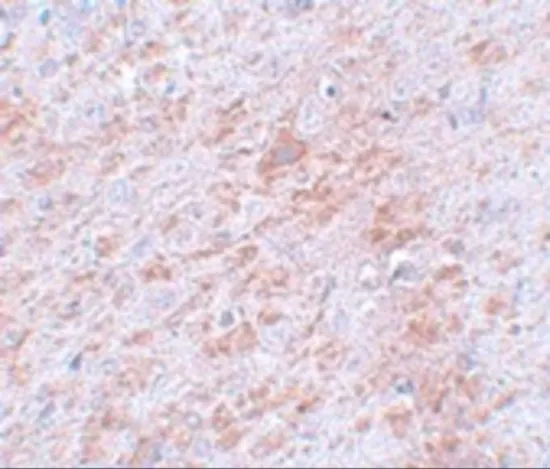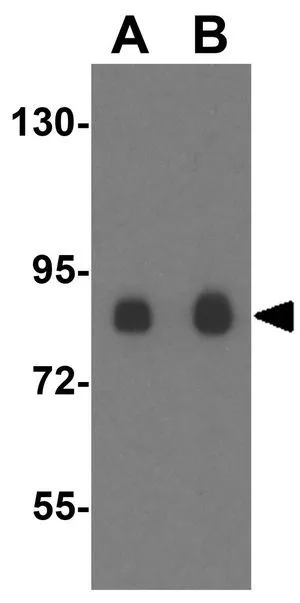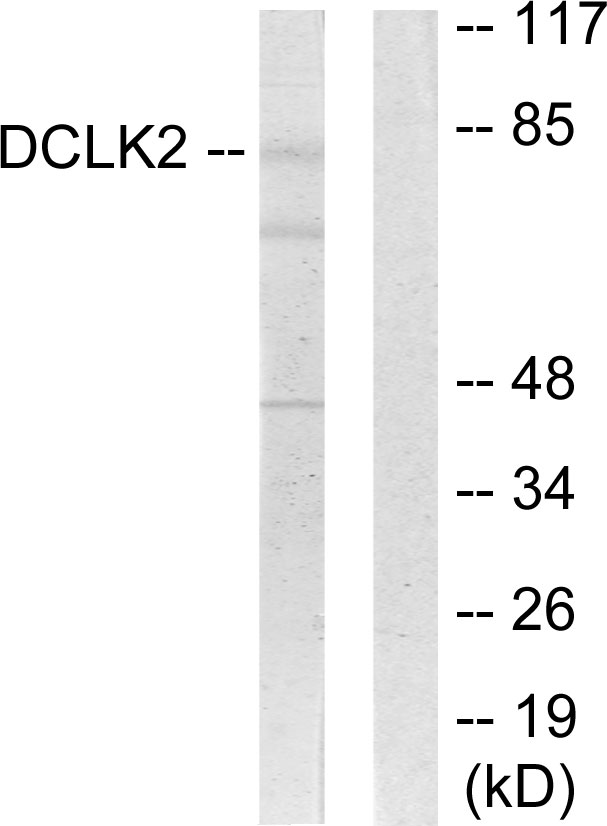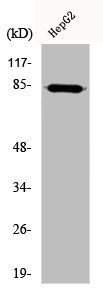
IHC-P analysis of rat brain tissue using GTX31404 DCAMKL2 antibody. Working concentration : 5 μg/ml
DCAMKL2 antibody
GTX31404
ApplicationsWestern Blot, ELISA, ImmunoHistoChemistry, ImmunoHistoChemistry Paraffin
Product group Antibodies
ReactivityHuman, Mouse, Rat
TargetDCLK2
Overview
- SupplierGeneTex
- Product NameDCAMKL2 antibody
- Delivery Days Customer9
- Application Supplier NoteWB: 1 - 2 microg/mL. IHC-P: 5 microg/mL. *Optimal dilutions/concentrations should be determined by the researcher.Not tested in other applications.
- ApplicationsWestern Blot, ELISA, ImmunoHistoChemistry, ImmunoHistoChemistry Paraffin
- CertificationResearch Use Only
- ClonalityPolyclonal
- Concentration1 mg/ml
- ConjugateUnconjugated
- Gene ID166614
- Target nameDCLK2
- Target descriptiondoublecortin like kinase 2
- Target synonymsCL2, CLICK-II, CLICK2, CLIK2, DCAMKL2, DCDC3, DCDC3B, DCK2, serine/threonine-protein kinase DCLK2, CaMK-like CREB regulatory kinase 2, doublecortin and CaM kinase-like 2, doublecortin domain-containing protein 3B, doublecortin-like and CAM kinase-like 2
- HostRabbit
- IsotypeIgG
- Protein IDQ8N568
- Protein NameSerine/threonine-protein kinase DCLK2
- Scientific DescriptionThis gene encodes a member of the protein kinase superfamily and the doublecortin family. The protein encoded by this gene contains two N-terminal doublecortin domains, which bind microtubules and regulate microtubule polymerization, a C-terminal serine/threonine protein kinase domain, which shows substantial homology to Ca2+/calmodulin-dependent protein kinase, and a serine/proline-rich domain in between the doublecortin and the protein kinase domains, which mediates multiple protein-protein interactions. The microtubule-polymerizing activity of the encoded protein is independent of its protein kinase activity. Mouse studies show that the DCX gene, another family member, and this gene share function in the establishment of hippocampal organization and that their absence results in a severe epileptic phenotype and lethality, as described in human patients with lissencephaly. Multiple alternatively spliced transcript variants have been identified. [provided by RefSeq, Sep 2010]
- ReactivityHuman, Mouse, Rat
- Storage Instruction-20°C or -80°C,2°C to 8°C
- UNSPSC41116161





![Various whole cell extracts (30 μg) were separated by 7.5% SDS-PAGE, and the membrane was blotted with DCAMKL2 antibody [N2C2], Internal (GTX105963) diluted at 1:500.](https://www.genetex.com/upload/website/prouct_img/normal/GTX105963/GTX105963_40030_20161110_WB_w_23060120_189.webp)
